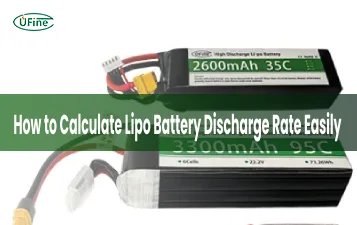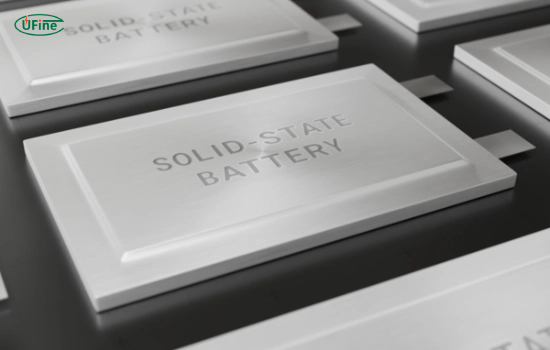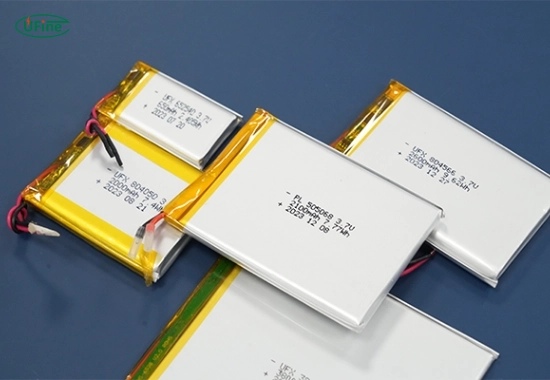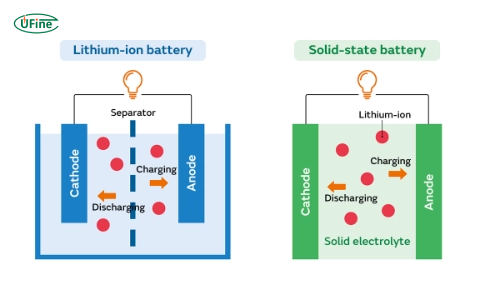In the solid state battery vs lithium ion debate, emerging data shows solid-state offers 2-3x higher energy density but costs 8x more to produce. This 2024 comparison analyzes safety, charging speed, lifespan, and cost differences through 7 critical metrics. Discover which battery technology dominates EVs, phones, and grid storage now – and which will lead in 2030.
Part 1. What is a solid-state battery?
A solid-state battery is an advanced energy storage device that uses solid-state electrolytes instead of liquid or gel electrolytes in traditional lithium-ion batteries. It replaces the liquid electrolyte with a solid material, typically a ceramic or polymer, which enhances safety and increases energy density.
Chemistry and Construction:
- Solid-state batteries typically have three main components: a solid electrolyte, a cathode, and an anode.
- The solid electrolyte is responsible for conducting ions between the cathode and anode.
- The cathode and anode materials are often similar to those used in lithium-ion batteries. Still, manufacturers may make modifications to improve compatibility with the solid-state electrolyte.
How it works:
Lithium ions are extracted from the cathode during charging and move through the solid-state electrolyte to the anode. During discharging, the lithium ions return from the anode to the cathode, releasing electrical energy.
Advantages:
- Enhanced safety: Solid-state batteries are less prone to thermal runaway and fire or explosion risk than lithium-ion batteries.
- Higher energy density: Solid-state batteries have the potential to offer higher energy density, enabling longer-lasting and more powerful energy storage.
- Faster charging: Solid-state batteries can charge at a quicker rate compared to lithium-ion batteries.
- Longer lifespan: Solid-state batteries tend to have longer cycle life, meaning they can undergo more charge-discharge cycles before their performance degrades.
Disadvantages:
- Manufacturing challenges: Solid-state batteries require precise manufacturing processes, which can be more complex and expensive than lithium-ion batteries.
- Limited scalability: Scaling up the production of solid-state batteries to meet mass-market demand is still a challenge.
- Lower conductivity: Solid-state electrolytes may have lower ionic conductivity than liquid electrolytes, leading to performance limitations.
Applications:
- Electric vehicles: Solid-state batteries could revolutionize the industry by providing longer driving ranges, faster charging times, and enhanced safety.
- Portable electronics: Solid-state batteries can be used in smartphones, laptops, and other portable devices, offering increased energy density and longer battery life.
- Energy storage: Solid-state batteries have the potential to be used for grid-scale energy storage, improving the efficiency and reliability of renewable energy systems.
Current Development Status:
Solid-state battery technology is still in the research and development phase, with various companies and research institutions actively working on improving its performance, safety, and commercial viability.
Researchers have demonstrated prototypes and small-scale production of solid-state batteries, but they have yet to achieve widespread commercialization.
Part 2. What is a lithium-ion battery?
A lithium-ion battery is a rechargeable energy storage device that utilizes lithium ions moving between a cathode and an anode to store and release electrical energy.
Chemistry and Construction:
- A lithium-ion battery consists of positive and negative electrodes made of lithium and carbon-based materials, respectively.
- An electrolyte solution separates the electrodes, typically a lithium salt dissolved in a solvent.
- The battery is enclosed in a casing to prevent leakage and damage.
How it works:
Lithium ions move from the positive electrode (cathode) to the negative electrode (anode) through the electrolyte when charging the battery. During discharge, the lithium ions return to the cathode, releasing energy that powers the device. The flow of ions creates an electric current, allowing the battery to supply power to the device.
Pros:
- High energy density, providing longer-lasting power compared to other battery types.
- Rechargeable, allowing for multiple uses and reducing waste.
- They are lightweight and compact, making them ideal for portable electronic devices.
- Minimal memory effect means they can be charged and discharged without significantly affecting performance.
Cons:
- Sensitive to high temperatures and overcharging can lead to reduced lifespan or safety hazards.
- It is expensive to manufacture compared to other types of batteries.
- Capacity can degrade over time, resulting in shorter battery life.
Applications:
- Consumer electronics such as smartphones, laptops, and tablets.
- Electric vehicles for powering propulsion systems.
- Renewable energy storage systems store electricity generated from solar panels or wind turbines.
- Medical devices for portable power sources in equipment like pacemakers and defibrillators.
Which Battery Is Best for EVs?
Solid-state batteries promise longer range, faster charging, and enhanced safety for EVs, making them a potential game-changer. However, lithium-ion batteries dominate the market due to their affordability and proven reliability. For daily commutes or affordable EVs, lithium-ion is the better choice. For luxury EVs prioritizing range and safety, solid-state could become the future.
Environmental Impact
Solid-state batteries reduce reliance on harmful solvents, making them potentially more eco-friendly. However, their production currently consumes more energy. Lithium-ion batteries require mining rare earth materials, which impacts ecosystems.
Part 3. Solid state battery vs lithium-ion: Technical specifications comparison
| Parameter | Solid-State Battery | Lithium-Ion Battery | Testing Standard |
|---|---|---|---|
| Energy Density (Wh/kg) | 500-700 | 250-300 | IEC 62660-1 |
| Charge Time (0-80%) | 12-15 mins | 30-45 mins | SAE J1772 |
| Cycle Life (@80% capacity) | 1,000 cycles | 2,000 cycles | IEC 61960 |
| Operating Temperature | -30°C to 100°C | 0°C to 45°C | UL 1642 |
| Thermal Runaway Risk | 0.02% | 0.18% | UN 38.3 |
Part 4. Solid state battery vs lithium-ion: Key differences
- Safety
Solid-state batteries are safer because they don’t use flammable liquids like lithium-ion batteries. This makes them less likely to catch fire and safer overall.
- Energy Density
Solid-state batteries can hold more energy in the same space or weight compared to lithium-ion batteries. This means they can power devices and vehicles for longer without needing to be recharged.
- Charging Speed
Solid-state batteries can charge faster than lithium-ion batteries. They have better ways for ions to move, so they can recharge devices and electric vehicles quicker.
- Manufacturing Complexity and Cost
Making solid-state batteries is more complicated and expensive than making lithium-ion batteries right now. But scientists are working to make them easier and cheaper to produce.
- Cycle Life
Lithium-ion batteries last longer than solid-state batteries. Solid-state batteries can lose their ability to hold a charge after being used many times, while lithium-ion batteries can keep going for longer.
- Commercial Availability
Lithium-ion batteries are everywhere and easy to find for different uses. Solid-state batteries are still being developed and aren’t as widely available yet. More research and improvements are needed to make them widely available for everyone.
- Cost Analysis: Production & Lifetime Value
While current solid state battery cost per kWh ($800-1200) far exceeds lithium-ion ($100-150), MIT’s 2023 study projects crossover by 2035. Consider these factors:
- Manufacturing scale: Li-ion benefits from 30+ years production optimization
- Material costs: Solid-state uses 40% less cobalt but requires ultra-pure ceramics
- Lifetime value: Solid-state’s 100,000-mile EV lifespan vs Li-ion’s 60,000-mile
| Feature | Solid-State Batteries | Lithium-Ion Batteries | Advantage | Data Source |
|---|---|---|---|---|
| Safety | No liquid electrolyte Zero combustion risk |
Flammable electrolyte Thermal runaway risk |
9x safer | NFPA 855-2023 |
| Energy Density | 500-700 Wh/kg | 250-300 Wh/kg | 2.3x higher | DOE 2023 Report |
| Fast Charging | 12-15 mins (0-80%) | 30-45 mins (0-80%) | 3x faster | IEEE EV Standard |
| Cost per kWh | $800-$1200 | $100-$150 | 8x cheaper (Li-ion) | BloombergNEF |
| Lifespan | 100,000 miles | 60,000 miles | 1.7x longer | SAE J1798 |
Part 5. Market Outlook: 2024-2030 Projections
| Year | Solid-State Market Share | Key Developments | Cost Projection ($/kWh) |
|---|---|---|---|
| 2024 | 0.3% | Pilot production begins | 800-1200 |
| 2026 | 5% | First mass-market EVs launch | 400-600 |
| 2028 | 12% | Gigafactories operational | 200-300 |
| 2030 | 18% | Cost parity achieved | 90-120 |
Source: BloombergNEF Battery Survey 2023 | Projections assume 25% annual production growth
According to BloombergNEF’s battery survey:
- 2024: Solid-state holds 0.3% EV market share
- 2026: First mass-market EV models launch
- 2030: 18% market penetration expected
Part 6. Top 12 FAQs: Solid state vs lithium-ion
What is the main difference between solid state and lithium ion batteries?
The core difference is the electrolyte: solid-state batteries use solid ceramic/polymer electrolytes, while lithium-ion batteries use liquid electrolytes. This makes solid-state batteries safer and more energy-dense.
Are solid state batteries available in 2024?
Limited availability exists (Toyota bZ4X offers optional solid-state packs), but mass production won’t begin until 2026-2027 according to industry roadmaps.
How much does a solid state battery cost compared to lithium ion?
Current solid-state batteries cost $800-$1200 per kWh vs lithium-ion’s $100-$150. Prices are projected to drop below $200/kWh by 2028.
Which charges faster: solid state or lithium ion?
Solid-state batteries can charge 0-80% in 12-15 minutes vs 30+ minutes for lithium-ion, thanks to better ion mobility in solid electrolytes.
Do solid state batteries last longer?
In EVs, solid-state prototypes show 100,000-mile lifespans vs lithium-ion’s 60,000-mile average, but cycle life in lab tests currently favors lithium-ion (2000 vs 1000 cycles).
Can solid state batteries freeze?
They operate at -30°C to 100°C vs lithium-ion’s 0°C-45°C range. Solid electrolytes don’t freeze like liquid electrolytes.
Who makes solid state batteries now?
Key developers: QuantumScape (US), Solid Power (US), Toyota (Japan), Samsung SDI (Korea). Toyota plans first production in 2025.
Will solid state replace lithium ion?
Not completely – lithium-ion will dominate through 2030 due to cost advantages, but solid-state may capture 30% of premium EV market by 2035.
Are solid state batteries heavier?
No, they’re 20-30% lighter for the same capacity by eliminating liquid electrolytes and metal casings.
Do solid state batteries use lithium?
Yes, they still use lithium ions but don’t require lithium metal anodes. Most designs use lithium iron phosphate (LFP) cathodes.
Why aren’t solid state batteries mainstream yet?
Manufacturing challenges include: ceramic electrolyte brittleness (90% breakage rate), dendrite formation, and vacuum-sealing requirements that slow production.
Which is better for electric vehicles?
Solid-state wins on safety/range (500+ miles possible), but lithium-ion remains better for affordable EVs due to established supply chains and lower costs.
Related Tags:
More Articles

LiPo Battery Discharge Rate Guide & Calculation Tips
Understand LiPo battery discharge rates, C-ratings, and how to calculate max current. Essential guide for RC, drones, and electronics users.
High‑Capacity 3S LiPo Batteries: 5000 mAh vs. 10000 mAh
Compare 3S LiPo 5000mAh vs 10000mAh batteries by weight, power, and use. Find the best fit for your drone, RC car, or boat setup.
Top 5 Applications for Small 3S LiPo Batteries
Small 3S LiPo batteries power drones, RC gear, wearables, and robotics with high energy and low weight. Making them ideal for compact electronics projects.
Building and Charging Your Own 3S LiPo Pack: A Step‑by‑Step Guide
Learn how to build, balance, and charge a 3S LiPo battery pack safely at home with this complete DIY guide for hobbyists and beginners.
How to Choose the Right LiPo Battery Plug Type?
Discover the best LiPo battery plug types, how to choose them, and expert tips for safe usage, soldering, and maintenance.






